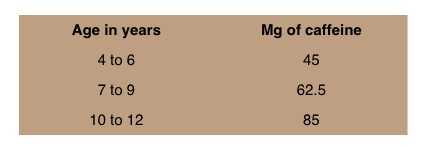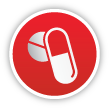Caffeine is a food supplement that is added to many drinks that are commonplace in the American diet. Caffeine is a stimulant that affects much of the body:
- The central nervous system gets excited.
- Caffeine sharpens the mind and the senses.
- The muscles tense and become less likely to feel fatigued.
- The heart pumps faster and stronger, and the airways actually relax, opening the way for an increased delivery of oxygen.
No wonder the use of caffeine is so prevalent.
As a supplement, while it can stimulate the appetite, caffeine improves the ability of the body to use fat for fuel. This fact would seem to merit its inclusion as a weight loss aid.
However, caffeine is no longer restricted to calorie-free coffee and tea. For many years it has been added to soft drinks, and more recently, the new “coffee bars” often whip caffeine into high calorie concoctions. The latest trend is to adding caffeine to soft drinks. This increases their consumption by children. The Canadian Medical Association Journal complained that “caffeine loaded energy drinks have now crossed the line from beverages to drugs delivered as tasty syrups.” Health Canada recommended the following daily maximums for children:
One of the drinks claims to:
- Increase performance
- Increase concentration and reaction speed
- Improve vigilance
- Improve emotional status
- Stimulate metabolism
While these are some of the known effects of caffeine, doesn’t it strike you funny that we would allow sugary stimulants to be pushed onto our children while they are under siege by problems like ADHD, obesity, and drug abuse, such as crystal meth (amphetamine)?



